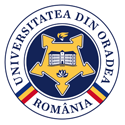GEOINFORMATICS SYSTEMS IN CADASTRE AND URBANISM (SGCU) Master's program
The Master's program Geoinformatics Systems in Cadastre and Urbanism is a coursework and project-based study program with a wide range of opportunities for practical experience and individual specialization. It comprises research-oriented activities through projects, seminars and dissertation thesis under the supervision of professors. The Master's programme allows students to expand and deepen their expertise in geospatial data acquisition, data analysis, as well as their visualization and exploitation across different platforms.
The field of geoinformatics encompasses geographic information science and cartography, geodesy and navigation, cadastre and topography, engineering geodesy and geomonitoring, remote sensing and photogrammetry. Society needs experts in each of these fields, but it also needs engineers with skills in several of them for interdisciplinary collaboration with other trades and fields of activity.
The curriculum provides a solid foundation of civil engineering and legislation, in addition to geographic positioning and mapping by traditional methods and satellite positioning, bathymetry, photogrammetry, and 3D laser scanning. The remote sensing techniques that you will learn in this program give you the opportunity to measure and observe our environment and especially those characteristics that cannot be seen with the human eye. Data management and analysis techniques allow you to turn these measurements into useful information and knowledge, with which patterns can be identified, behavior can be tracked over time, and a future state can be predicted. You will apply your skills in 3D modelling, GIS, mapping, urban design, heritage planning and conservation, simulation and visualization in a wide range of areas such as urban planning, disaster management, geodesign, location-based services and land management.
You will have the opportunity to work with state-of-the-art geodetic equipment such as robotic total stations, GNSS and 3D laser scanning. You will be involved in everyday practice through company visits, workplace placements, seminars and study days. Your Master's dissertation can either take the form of a collaboration with industry or be part of ongoing research.
In addition, vital transferable skills such as teamwork, critical thinking, problem-solving, communication, and scientific work are promoted through projects, lab work, and courses that expose students to cutting-edge scientific research and advanced methods, as well as real-world situations and case studies. Students enjoy the opportunity to connect with the private sector and interact with potential employers.
